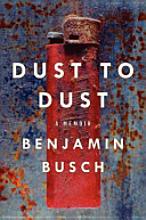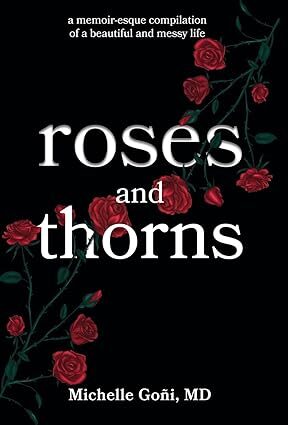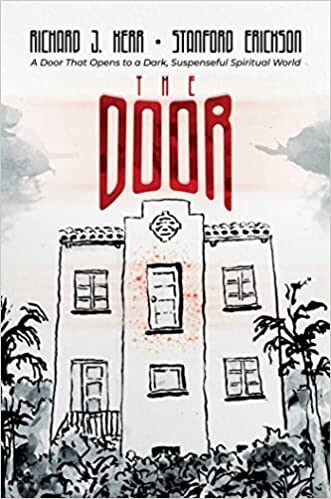 “I was not allowed to have a gun. My parents were fresh from Vietnam War protests and they had no intention of raising a soldier. My mother was against he idea of toy weapons, and my father quietly supported the embargo…. My mother’s father, Allan Burroughs, had been a marine in the Guadacanal campaign against the Japanese. He called me ‘Little Son of a Gun,’ but I continued to have no guns at all.”
“I was not allowed to have a gun. My parents were fresh from Vietnam War protests and they had no intention of raising a soldier. My mother was against he idea of toy weapons, and my father quietly supported the embargo…. My mother’s father, Allan Burroughs, had been a marine in the Guadacanal campaign against the Japanese. He called me ‘Little Son of a Gun,’ but I continued to have no guns at all.”
Yet when Benjamin Busch grew up, he became a U.S. Marine who served two combat tours in Iraq, and reflected that “The soldier arrives home with his futile arms to discover that the war he has returned from has slowly been forgotten, and because he has survived as a witness to it, neither he nor his country are innocent. Both try to dream again, the soldier by remembering himself before the war, and the country by forgetting the soldier it sent away.”
The son of celebrated novelist Frederick Busch, Benjamin felt that his father “experienced the world through language”, whereas he himself “gained comprehension of my environment by throwing myself against it.
Digging, cutting, climbing, stacking. What my father built with words, I built with pieces of the earth, stones, and wood….. Tragedy was inevitable for him, whereas I believed that the inevitable could be fought.” Dust To dust is a memoir about Benjamin’s rural childhood in New York and his training in North Carolina and California and the time that he spent in the war on Iraq, about someone who always wanted to be a soldier when he was a child. “I made no considerations for rejection or betrayal. My ambitions imagined no losses. What could be lost?” he writes about his magical childhood.
As a child Benjamin made a wooden fort and bullets from a mold, and one Christmas he was given an 1860 non-commissioned officer’s sword that “signified my parents’ admission that I was a martial creature.” Then “….with what was left of my youth I continued to practice at territorial defense and pretend at survival.”
Benjamin joins the Marines and finally “I carried an M16 – a service rifle there, but we never fired live ammunition.” He learned the Marine Rifle Creed, part of which states, “This is my rifle. There are many like it, but this one is mine. My rifle is my best friend. It is my life. I must master it as I must master my life. My rifle, without me, is useless. I must fire my rifle true. I must shoot straighter than my enemy who is trying to kill me. I must shoot him before he shoots me. I WILL.”
In April of 2003 Benjamin went to Iraq as the commanding officer of a light armored reconnaissance and mused that “It was estimated that hundreds of Iraqis were killed each year by stray rounds fired in celebration from personal rifles. I found it odd that celebration and mourning were coupled in so many single, detailed acts. All bullets land somewhere.” And, “At home, my war was not popular. It was deemed, by the evidence, to be unjustified.” He also realizes that “an Iraqi boy, surrounded by war, could not play war. He could not build a fort and pretend, even, at its impossible defense.” And then Benjamin returns home and gets an acting job, portraying a police officer on HBO’s The Wire.
Considering himself a “solitary being,” Benjamin claims that “I have been welcomed home many times, but I have never come all the way back from the places I have been.” By the same token, he carries his childhood everywhere with him, remembering using the walls of an old abandoned house as a raft in Maine and being in the ocean, against which his father had warned him, saying, “Children lost at sea would never come home, and no one could save them.”
Years later, on the USS Fort McHenry in 1998 as a lieutenant, “Everything in the ship was metal – the bulkheads and decks, hatches and desks, pipes and weapons. I was in an entirely metallic environment, and it was both without sentiment and unforgiving. Its comforts were sparse – no rugs or wallpaper, nothing that could burn. The element that the Navy feared the most was fire. And later, it was fire that drove the ship, tanks of fuel and massive engines that made propellers churn and the hull shudder. But propellers with aluminum, foil and wood took the ship down.”
Building an airplane to try to fly over the ocean as a child, being handed a note in Iraq that said he would be dead by nightfall, or ice-fishing on a lake in Michigan, Benjamin Busch’s stories are always vivid and thought-provoking. At the very beginning of Dust To Dust Benjamin Busch quotes his father Frederick Busch, telling us what stories are: “Stories are….in a sense, about ending and about endings, and of course they are also the heartfelt prayer, the valiant promise, that what we have loved should live forever.” Dust To Dust is a magnificent and poetic memoir, made so by the author’s intensely personal and well-written accounts of his life experiences.
Dust To Dust, a new memoir by Benjamin Busch, published by Ecco (an imprint of Harper Collins) on March 20, 2012.
Reviewed by Christina Zawadiwsky
Christina Zawadiwsky is Ukrainian-American, born in New York City, has a degree in Fine Arts, and is a poet, artist, journalist and TV producer. She has received a National Endowment for the Arts Award, two Wisconsin Arts Boards Awards, a Co-Ordinating Council of Literary Magazines Writers Award, and an Art Futures Award, among other honors. She was the originator and producer of Where The Waters Meet, a local TV series created to facilitate the voices of artists of all genres in the media, for which she won two national and twenty local awards, including a Commitment to Community Television Award. She is also a contributing editor to the annual Pushcart Prize Anthology, the recipient of an Outstanding Achievement Award from the Wisconsin Library Association, and has published four books of poetry. She currently reviews movies for , music forhttp://www.musicroomreviews.com, and books for .
Views: 114



Chris
Although I never was into war myself, I can see how certain personalities are geared towards being in the military.
JP
I’m against war – but it’s interesting to see how a person might want to defend their country.
Pat
The quotes from this book are very poetic – evidently the person was not only a soldier at heart, but a poet too! A definite must-read!
gman
Benjamin Busch is another in a long line of poet soldiers. I wonder if the situation makes the poet , or if it is in that person, the fact that they seek out conflict, to bring out the poet in them. I would like to read this book.
Joan
It is interesting that Busch would be so unlike his father in ways (wanting from childhood to be a military person) yet like him in literary accomplisment. You wonder what imbues a child to define himself as a “martial creature.”